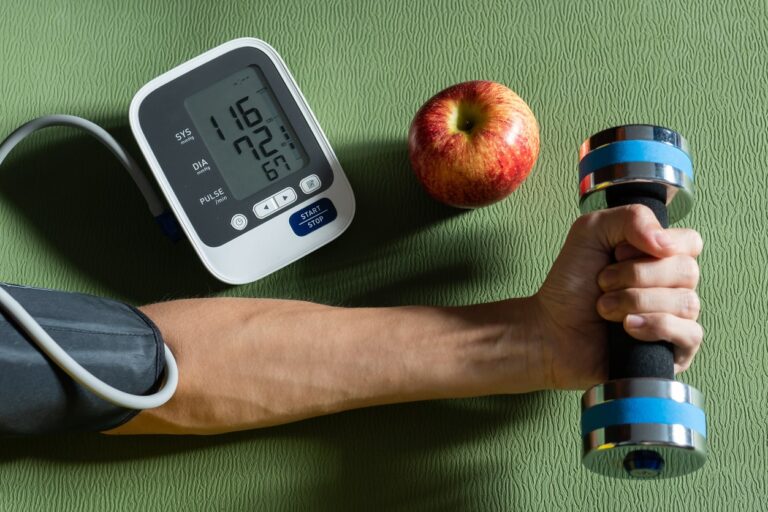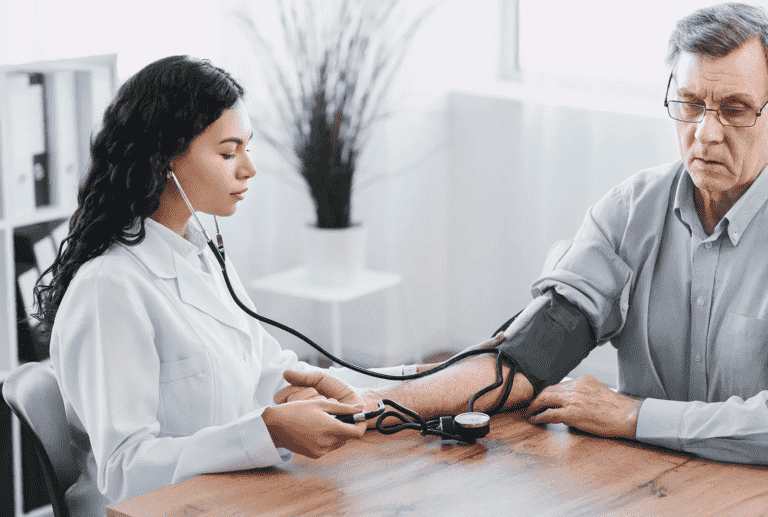Hypertension, also known as high blood pressure, is a common health condition affecting millions of people worldwide. It is defined as a persistent elevation in blood pressure, where the systolic pressure (pressure during heart contraction) exceeds 140 mmHg and/or the diastolic pressure (pressure during heart relaxation) exceeds 90 mmHg. Serious health issues like heart disease, stroke, and renal failure can be brought on by hypertension. One of the most significant complications of hypertension is the development of vascular disease. In this article, we will discuss the link between hypertension and vascular disease, its causes, symptoms, and prevention strategies.
WHAT IS VASCULAR DISEASE?
Vascular disease is a condition that affects the blood vessels, causing them to narrow, weaken or block altogether. It can affect any part of the body, including the brain, heart, arms, legs, and kidneys. Vascular disease is a common complication of hypertension because high blood pressure can cause damage to the walls of the blood vessels, leading to inflammation, thickening, and narrowing of the vessels. Over time, this damage can result in the formation of plaques (fatty deposits) in the blood vessels, which can further narrow the vessels, reduce blood flow and increase the risk of complications.
CAUSES OF HYPERTENSION AND VASCULAR DISEASE
There are many factors that can contribute to the development of hypertension and vascular disease. Among the most frequent causes are:
- Genetics: A family history of hypertension and vascular disease can increase the risk of developing these conditions.
- Lifestyle: Poor diet, lack of exercise, smoking, and excessive alcohol consumption can all contribute to the development of hypertension and vascular disease.
- Age: As people age, their risk of developing hypertension and vascular disease increases.
- Medical conditions: Certain medical conditions, such as diabetes, high cholesterol, and kidney disease, can increase the risk of developing hypertension and vascular disease.
- Stress: Chronic stress can cause an increase in blood pressure, which can contribute to the development of hypertension and vascular disease.

SYMPTOMS OF HYPERTENSION AND VASCULAR DISEASE
Hypertension and vascular disease often do not cause any symptoms in their early stages. Nonetheless, some people may have the following signs as the illness worsens:
- Headaches
- Dizziness
- Chest pain
- Shortness of breath
- Leg pain or cramping
- Changes in vision
- Fatigue
PREVENTION STRATEGIES FOR HYPERTENSION AND VASCULAR DISEASE
Fortunately, there are several ways to prevent hypertension and vascular disease. Some of the most effective prevention strategies include:
- Maintaining a healthy diet: Eating a diet rich in fruits, vegetables, whole grains, lean protein, and healthy fats can help reduce the risk of hypertension and vascular disease.
- Regular exercise: Engaging in regular physical activity, such as walking, running, swimming, or cycling, can help lower blood pressure, improve circulation, and reduce the risk of hypertension and vascular disease.
- Quitting smoking: Smoking can damage the walls of the blood vessels, leading to inflammation and narrowing of the vessels. Quitting smoking can reduce the risk of hypertension and vascular disease.
- Limiting alcohol consumption: Excessive alcohol consumption can raise blood pressure and contribute to the development of hypertension and vascular disease. Limiting alcohol consumption can help reduce the risk of these conditions.
- Managing stress: Chronic stress can increase blood pressure and contribute to the development of hypertension and vascular disease. Practicing stress-management techniques, such as yoga, meditation, or deep breathing, can help reduce stress and lower the risk of these conditions.

TREATMENT OPTIONS FOR HYPERTENSION AND VASCULAR DISEASE
If hypertension and vascular disease are left untreated, they can lead to serious complications, including heart attack, stroke, and kidney failure. Therefore, it is essential to seek medical treatment if you have been diagnosed with hypertension or vascular disease. Depending on the severity of the illness, many treatment options can be available, including:
- Medications: There are several medications available that can help lower blood pressure, reduce inflammation, and prevent blood clots.
- Lifestyle modifications: Making lifestyle changes, such as improving diet and exercise habits, quitting smoking, and limiting alcohol consumption, can help improve blood pressure and reduce the risk of complications.
- Surgery: In severe cases, surgery may be necessary to remove blockages from the blood vessels and improve blood flow.
It is essential to work closely with your healthcare provider to develop an individualized treatment plan that meets your specific needs.
By taking proactive steps to manage your health, such as seeking specialized care when necessary, you can reduce your risk of complications and improve your overall well-being. For specialized care, you can call Specialty Care Clinics at 469-545-9983.
